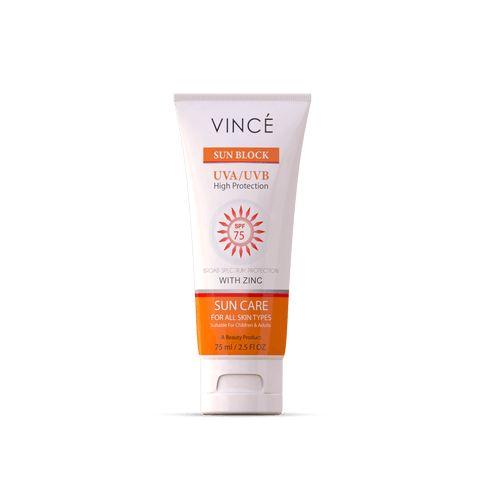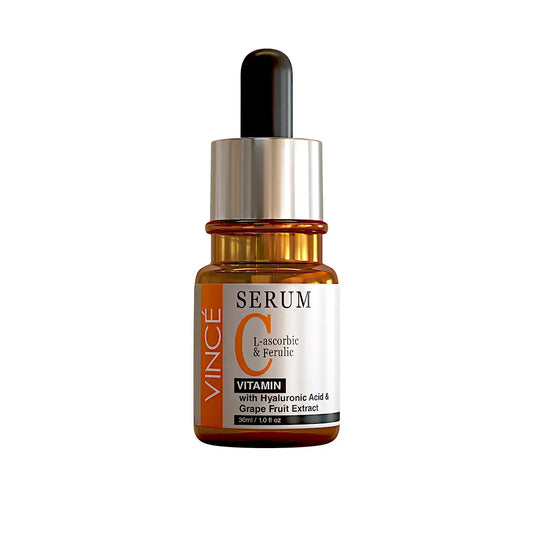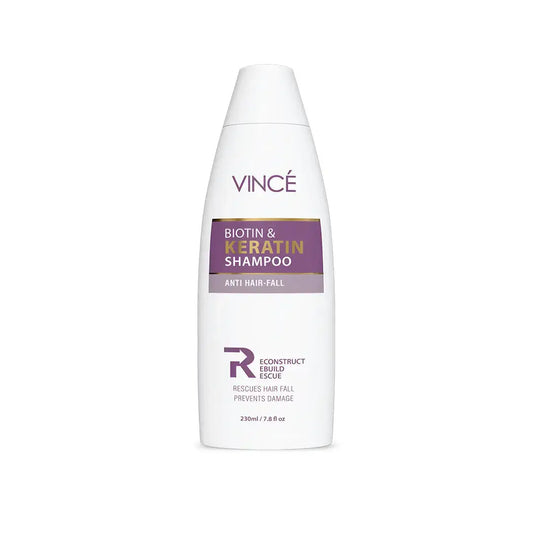Everything You Need to Know About Sunscreen

The warm and bright rays of the sun beckon us outdoors to embrace its presence. But this heavenly feel makes us overlook the silent threat lingering in the air – the damaging effects of ultraviolet radiation on the skin.
We all desire to treasure the sun without worrying about UV radiation and skin damage. Turns out that to crack this balance, a comprehensive Sunscreen Guide like this one is mandatory.
If you need recommendations on sunscreen for different skin types or a further understanding of the Benefits of wearing sunscreen, this article has all the answers.
What is sunscreen?
Sunscreen, alternatively named sunblock or sunscreen, is a product seated protectively on your skin to guard against the sun's damaging UV rays by absorbing or reflecting them.
Benefits of Wearing Sunscreen
It's crucial to pin down benefits to highlight the importance of sunscreen in the skincare routine. Why exactly is protection from the sun so hyped, and the application of sunscreen is non-negotiable? Let us review quickly in this section of the Sunscreen Guide:
- Reduces the risk of skin cancer
- Delay the signs of premature aging like wrinkles and skin sagging
- Prevents the appearance of dark spots on the skin and hyperpigmentation and thus promotes even skin tones
- Inhibits sunburns by blocking UVB rays
- Offer protection against damaging blue light
- Promotes overall skin health by reducing sun-induced damage
Important Link: Best Sunblock in Pakistan For Summer 2025
Decoding SPF - Sun Protection Factor
Two types of rays travel from the sun and reach our skin with severe consequences.
- UVA mainly contributes to signs of premature aging, including wrinkles and skin sagging.
- UVB have serious repercussions, like causing cancer and being responsible for sunburn.
SPF (Sun Protection Factor)
SPF is the measure of time sunscreen will shelter the skin from the sun’s UV rays. Compared to unprotected skin, higher SPF ensures you can stay in the sun for an extended period.
A sunscreen with SPF 50 provides a shield against the sun 50 times more than without its application.
Broad-spectrum
Broad-spectrum sunscreen offers comprehensive coverage by blocking both the UVA and UVB rays. It’s everyone’s top choice recently, all because of its ultimate protection. So preferably opt for a sunscreen with the label “Broad-spectrum” gracing the bottle.

Understanding Physical and Chemical Sunscreen
The difference between physical and chemical sunscreen lies in their formulating ingredients and how they protect the skin from the sun rays.
Physical or Mineral sunscreen creates a protective layer on the skin, reflecting UV radiation. Zinc Oxide and Titanium dioxide are the two names you will most commonly encounter in the ingredient list.
Where both are declared safe for the skin, Zinc Oxide is the first choice for sensitive skin and children. The only problem is they tend to leave white residues on application, but the latest formulation with tinted zinc oxide effectively addresses this concern.
Chemical sunscreen contains active ingredients like oxybenzone and octinoxate that absorb UV rays before their penetration into the skin. They are comparatively lightweight, and one hardly notices their application on the skin.
Sunscreen For Different Skin Types
It’s a fact that reliable sunscreen guides you to healthy skin. But every skin type has its own specific needs. Everyone desires to strike the right chords in selecting a sunscreen that complements their skin and promotes comfortable application. Following are a few tips to keep in mind when perfectly aligning the sunscreen with the skin type.
1. Normal Skin
The ones with normal skin can be more flexible in their choice of sunscreens. There are not many ingredients that can be worrisome for normal skin possessors. It’s mostly about personal preference, so choose cream or gel form based on your liking.
Be more inclined towards organic formulations with elegant texture that leaves no white residues on application.
2. Dry Skin
Dry skin always demands its fair share of extra moisture. Look out for Sunscreen Ingredients that retain moisture and prevent dryness, like hyaluronic acid, shea butter, and glycerin.
Important Link: Is daily sunblock safe for dry skin? Let’s find out!
3. Oily Skin
Water-based or gel-formula sunscreens are preferred picks in case of oily skin. Many sunscreen ingredients control the oil production, such as niacinamide and tea tree oil. Matte finish and lightweight formulation that are less greasy on the skin provide lasting protection.
4. Sensitive Skin
Sensitive skin is more prone to allergic reactions and irritation, so scanning sunscreen ingredients needs special attention. Opt for products labeled as “Suitable for Sensitive Skin”, which are often hypoallergenic, fragrance-free and gentle on the skin. Avoid products with harsh chemicals and aim for mineral sunscreen with zinc oxide and titanium dioxide.
Important Link: How Does Sunblock Protect From Sunburn?

3 Most Common Sunscreen Myths and Facts
01: Sunscreen applied in the morning will last for the whole day.
Sunscreen loses its effectiveness over time, and sun exposure breaks down its ingredients. So, reapply sunscreen after every 2 – 4 hours for better protection.
02: Dark skin colors don’t need sunscreen.
Skin color grants no immunity against UV rays or dodge sunburns. No ethnicity, background, or skin color is safe from the cruel treatment of the sun. And everyone needs to apply sunscreen regularly.
03 One needs to wear sunscreen only when going outside.
UV rays passing through the window in the home have harmful effects. Similarly, sun rays reflect from certain surfaces, necessitating sunscreen even when standing under the shade.
Conclusion
Sunscreen stands as the ultimate solution against many skin concerns, including sunburns, premature signs of aging and increased rate of skin cancer that all stem from exposure to sun’s UVA and UVB rays. Two main categories, physical and chemical sunscreens, are differentiated based on their formulations and way of handling sun rays.
Every skin type has specific needs. Look out for sunscreens tailor-made for your skin type, and the application feels comfortable. Sunscreen is one of the most essential skincare products, and tons of circulating myths and facts need to rest for lasting healthy skin. Reapply your sunscreen every 2- 4 hours for final protection.
Important Link: Top 3 Amazing Sun Blocks by Vince Care

Frequently Asked Questions (FAQs)
Q1. What is sunscreen and how does it work?
Sunscreen is a product formulated to shield the skin from the sun's harmful rays. These rays can cause sunburns and increase the risk of skin cancer. Sunblock contains active ingredients that either block or absorb the UV rays before they even penetrate the skin.
Q2. Why is sunscreen important for skin health?
In the skincare routine, sunscreen provides lasting skin health by protecting against the sun’s damaging rays. It helps to avoid sunburn, suntan, premature signs of aging and skin sagging. The relationship between sunscreen and skin cancer prevention is significant, as the sun’s rays increase the risk of skin cancer.
Q3. How do I choose the right sunscreen for my skin type?
Opt for broad-spectrum sunscreen to achieve ultimate safety and an SPF level based on the level of sun exposure. For oily and acne-prone skin, prefer non-comedogenic, less greasy and water or gel-based formulation. Dry skin demands sunscreen with hydrating agents and consider a hypoallergenic option in case of sensitive skin.
Q4. Is sunscreen effective against both UVA and UVB rays?
Yes, "Broad-spectrum" sunscreen works well to block both UVA and UVB rays. Ensure this label is inked on the sunscreen bottle for comprehensive protection against both rays.
Q5. What are the differences between chemical and physical sunscreens?
The difference is mainly in the active ingredients and the mechanism of how they tackle sun rays that reach our skin. Chemical sunscreen contains organic compounds that absorb UV light and convert it to heat. Physical sunscreen, composed of mineral ingredients like zinc oxide and titanium dioxide, forms a barrier on the skin and reflects the rays.



